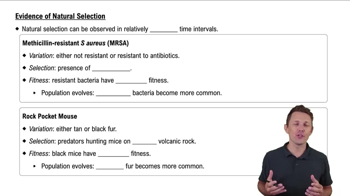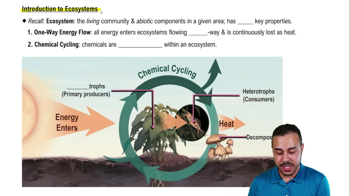Over half of the world’s human population lives in cities. Are species adapting to life in these novel urban environments? A global team of researchers (including Tiffany Longo, Jesse Bragger, and Summer Shaheed, shown in in the photo) used white clover as a study system to find out. They measured the production of a compound called hydrogen cyanide (HCN) in rural and urban clover plants. Production of HCN deters herbivores and increases tolerance to drought but has a cost: Clover must expend energy to produce HCN.
The production of HCN is a heritable Mendelian trait controlled by just two unlinked genes (Ch. 14, Section 14.2; clover plants with at least one dominant allele produce HCN, but plants that are homozygous recessive for both genes produce no HCN). Apply Darwin’s four postulates to explain natural selection for low HCN production in a population of clover living in a city with few herbivores and ample water.






